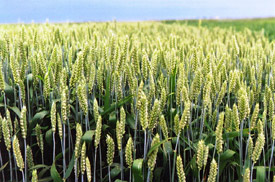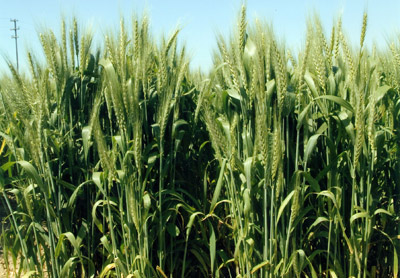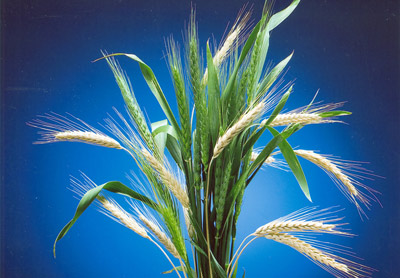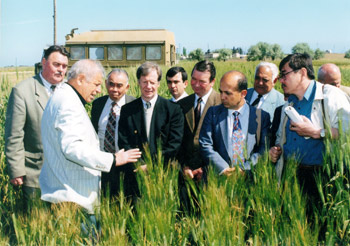
Last news
[20.06.2008]НАУЧНЫЙ РУКОВОДИТЕЛЬ И КОНСУЛЬТАНТ ДИССЕРТАНТОВ
[20.06.2008]НАУКА
ИСТИННА
[20.06.2008]Awards
[20.06.2008]Brief essay on scientific activity of Professor JALAL ALIYEV
[17.06.2008]Список книг Д.А.Алиева
Announcements
20.06.2008
On June 27, 2008 the talk of famous Japanese scientist in the field of photosynthesis, Professor Murata N. will be held in the Institute of Botany.
20.06.2008
On June 25, Tarlan Mammadov Hazarpasha oglu will defend his dissertation entitled "Identification, characterization and ... →
20.06.2008
The International Conference and Workshop on "Bioinformatics: Current Progress and Practical Applications" devoted to the 80th anniversary of J. Aliyev... →
Scientific achivements
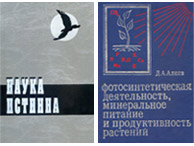
НАУКА ИСТИННА
20.06.2008
(Документальная хроника)
В тяжелое для страны время политических игр трудный путь борьбы академика Джалала Алиева во имя принципов чистоты науки и торжества истины →
13.06.2008
ORIGIN: The variety was released at Research Institute of Agriculture crossing local "Garagylchyk" cultivar with "Norin-10" by a multistage selection. →
7.06.2008
Д.А.Алиев. Влияние микроэлементов на некоторые физиологические процессы и урожайность озимой пшеницы. →
News
Scientists Warn That Species Extinction Could Reduce Productivity of Plants on Earth by as Much as Half
(Santa Barbara, Calif.) –– An international team of scientists has published a new analysis showing that as plant species around the world go extinct, natural habitats become less productive and contain fewer total plants –– a situation that could ultimately compromise important benefits that humans get from nature. The article is to appear in the online issue of the Proceedings of the National Academy of Sciences the week of Nov. 5."The process by which plants grow and produce more plant biomass is one of the most fundamental biological processes on the planet," said Bradley Cardinale, lead author of the paper and assistant professor of biology at the University of California, Santa Barbara. Plant productivity regulates the ability of nature to take greenhouse gases like carbon dioxide out of the atmosphere, as well as the ability of habitats to produce oxygen, food, fiber, and biofuels, according to the authors of the study. "Therefore, species extinctions could compromise the benefits that nature provides to society," said Cardinale.
The study summarized the results of 44 experiments from around the world that simulated plant species extinction and showed that ecosystems with fewer species produce up to 50 percent less plant biomass than those with more "natural" levels of diversity.
"Our analyses provide the most comprehensive evidence yet that natural habitats with a greater variety of plant species are more productive," said co-author Michel Loreau of McGill University in Montreal. "This occurs partly because diverse communities are more likely to contain highly productive species. But even more important, our analyses show that diverse communities are more productive because plants are пїЅпїЅ?complementary' in how they use biological resources. In other words, different plant species play unique roles in the environment."
Co-author Andy Hector, an assistant professor at the University of Zurich, explained this result with a sports analogy. "The results of our analyses suggest that plant communities operate much like a soccer team," he said. "Teams are composed of both star players and supporting players. You probably can't win many games if you lose your top striker because she or he is the most productive player and can dominate a game. But strikers cannot win games by themselves. They need great passes from supporting players and solid goal-tending if the team is going to be successful as a whole."
According to the authors, plant communities are also composed of both stars and supporting players. Some plants are so productive that they dominate the productivity of natural habitats. But supporting species complement the key players and enhance the productivity of plant communities even further. They said that species extinction is one of the most pronounced environmental changes of our time and noted that many scientists now argue that the Earth is in the middle of the sixth mass extinction in the history of life. Some estimates suggest that as much as 50 percent of all known species could be extinct by the end of this century.
Cardinale emphasized that experiments to date have probably underestimated the impact of species loss on ecosystems. "We found that as experiments were run longer, they detected increasingly strong impacts of species diversity on plant productivity," he said. "Unfortunately, because most experiments have only been funded to run for a few years at a time, they have probably underestimated the impacts of extinction on natural habitats." Other authors of the study, in addition to those mentioned above, are: Marc W. Cadotte, Ian T. Carroll, and Jerome J. Weis of UC Santa Barbara; Justin P. Wright of Duke University; and Diane S. Srivastava of the University of British Columbia.

